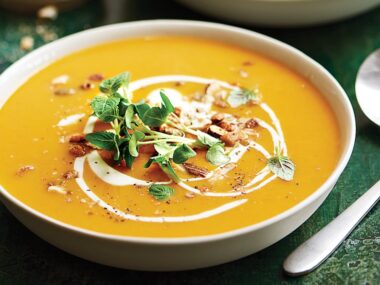Turkey is a versatile and delicious meat that can be prepared in various ways to create a hearty and satisfying meal. Eating turkey can provide various health benefits due to its nutritional profile.
Nutritional benefits of consuming turkey
1. Lean Source of Protein: Turkey is an excellent source of lean protein, which is essential for muscle growth, repair, and overall body function. Protein also helps with satiety, making you feel full and satisfied.
2. Low in Fat: Turkey, especially turkey breast meat, is naturally low in fat, particularly saturated fat. This makes it a heart-healthy option that can help reduce the risk of cardiovascular diseases when consumed as part of a balanced diet.
3. Rich in Vitamins and Minerals:
- B Vitamins: Turkey is a good source of various B vitamins, including B3 (niacin), B6 (pyridoxine), and B12 (cobalamin). These vitamins play vital roles in metabolism, energy production, and nervous system health.
- Minerals: Turkey provides essential minerals like phosphorus, potassium, and selenium, which are important for bone health, muscle function, and antioxidant protection.
4. Low in Calories: Skinless turkey breast meat is relatively low in calories, making it an excellent choice for those looking to manage their calorie intake and maintain a healthy weight.
5. Rich in Selenium: Turkey is a good source of selenium, an important mineral that acts as an antioxidant and plays a role in protecting cells from oxidative damage. Selenium also supports thyroid function.
6. Amino Acids: Turkey is rich in essential amino acids, including tryptophan, which is a precursor to serotonin. Serotonin is a neurotransmitter that can help regulate mood, promote relaxation, and improve sleep.
7. Low Allergenicity: Turkey is less likely to cause allergies compared to some other meats like beef or pork, making it a suitable protein source for individuals with specific dietary restrictions or sensitivities.
8. Versatility: Turkey can be prepared in various ways, from roasted and grilled to ground turkey for use in dishes like chili and burgers. Its versatility allows for a wide range of culinary options.
9. Promotes Fullness: The protein content in turkey can help promote a feeling of fullness and satiety, which may aid in weight management by reducing overall calorie consumption.
10. Supports Healthy Skin: The vitamins and minerals in turkey, particularly B vitamins like niacin and vitamin B6, can contribute to healthy skin by supporting its growth and repair.

Ways to enjoy turkey as a meal
Roast Turkey:
- Roasting a whole turkey is a classic and festive way to prepare this meat. It’s often associated with holiday meals like Thanksgiving and Christmas.
- A roast turkey is typically seasoned with herbs and spices, and it’s roasted in the oven until it’s golden brown and tender.
- Serve it with traditional sides like stuffing, mashed potatoes, gravy, and cranberry sauce for a complete holiday feast.
2. Turkey Sandwich:
- Turkey sandwiches are a quick and convenient way to enjoy turkey for lunch or a light dinner.
- Layer thinly sliced roasted or deli turkey between slices of bread or in a wrap.
- Add your favorite condiments, vegetables, and cheeses for extra flavor and texture.
3. Turkey Soup:
- Turkey can be used to make hearty soups like turkey noodle soup or turkey and vegetable soup.
- Simmer turkey leftovers with broth, vegetables, and noodles or rice to create a comforting and nutritious soup.
4. Turkey Salad:
- Make a turkey salad by combining diced or shredded turkey with fresh greens and a variety of vegetables.
- Top with your choice of salad dressing or vinaigrette for a healthy and satisfying meal.
5. Turkey Stir-Fry:
- Slice turkey into thin strips and stir-fry it with an assortment of vegetables like bell peppers, broccoli, and snap peas.
- Add your favorite stir-fry sauce for a quick and flavorful meal.
6. Ground Turkey Dishes:
- Ground turkey is a lean and versatile option that can be used in various recipes, such as turkey burgers, turkey chili, turkey meatballs, or turkey tacos.
- Season ground turkey with herbs and spices to enhance its flavor.
7. Turkey Casseroles:
- Create comforting casseroles using turkey, such as turkey and rice casserole, turkey tetrazzini, or turkey shepherd’s pie.
- These dishes often include a combination of turkey, vegetables, and a creamy sauce, topped with cheese or breadcrumbs.
8. Turkey Curry:
- Use diced turkey to make a flavorful turkey curry. Simmer it with aromatic spices, coconut milk, and vegetables for a rich and satisfying meal.
- Serve over rice or with naan bread.
9. Grilled or BBQ Turkey:
- Marinate turkey pieces in your favorite BBQ sauce or marinade and grill them for a smoky and delicious meal.
- Grilled turkey is great for sandwiches, salads, or as a main course.
10. Turkey Pot Pie: – Turkey pot pie is a comforting dish that combines turkey, vegetables, and a creamy sauce, all encased in a flaky pastry crust. – It’s a hearty and satisfying meal, perfect for using leftover turkey.
It’s important to note that while turkey is a nutritious protein source, the nutritional value can vary depending on the cut and how it’s prepared.
Roasting or grilling turkey without adding excessive fats and sauces can help maintain its health benefits. Additionally, it’s best to consume turkey as part of a well-balanced diet that includes a variety of foods to ensure you get a wide range of nutrients.










